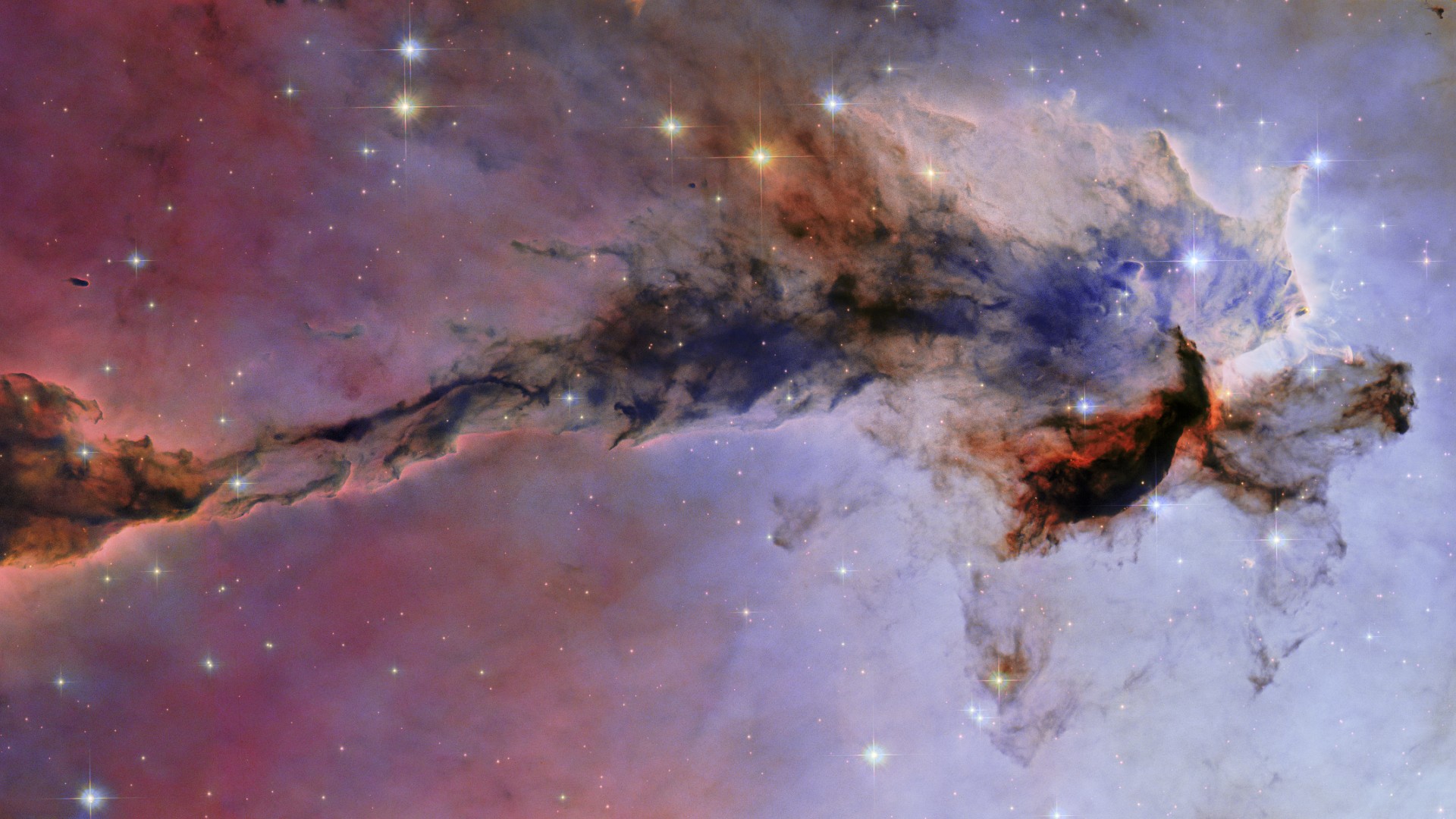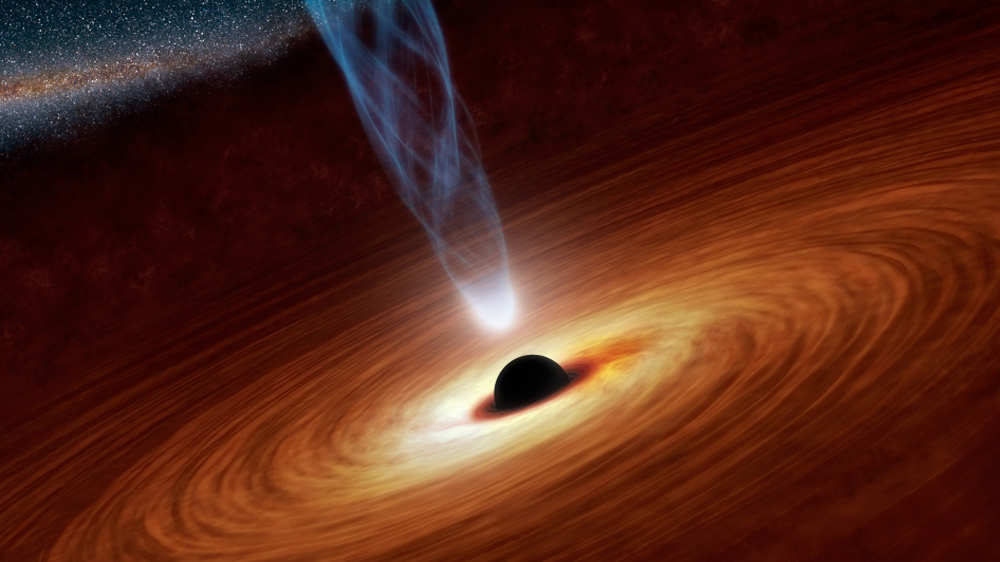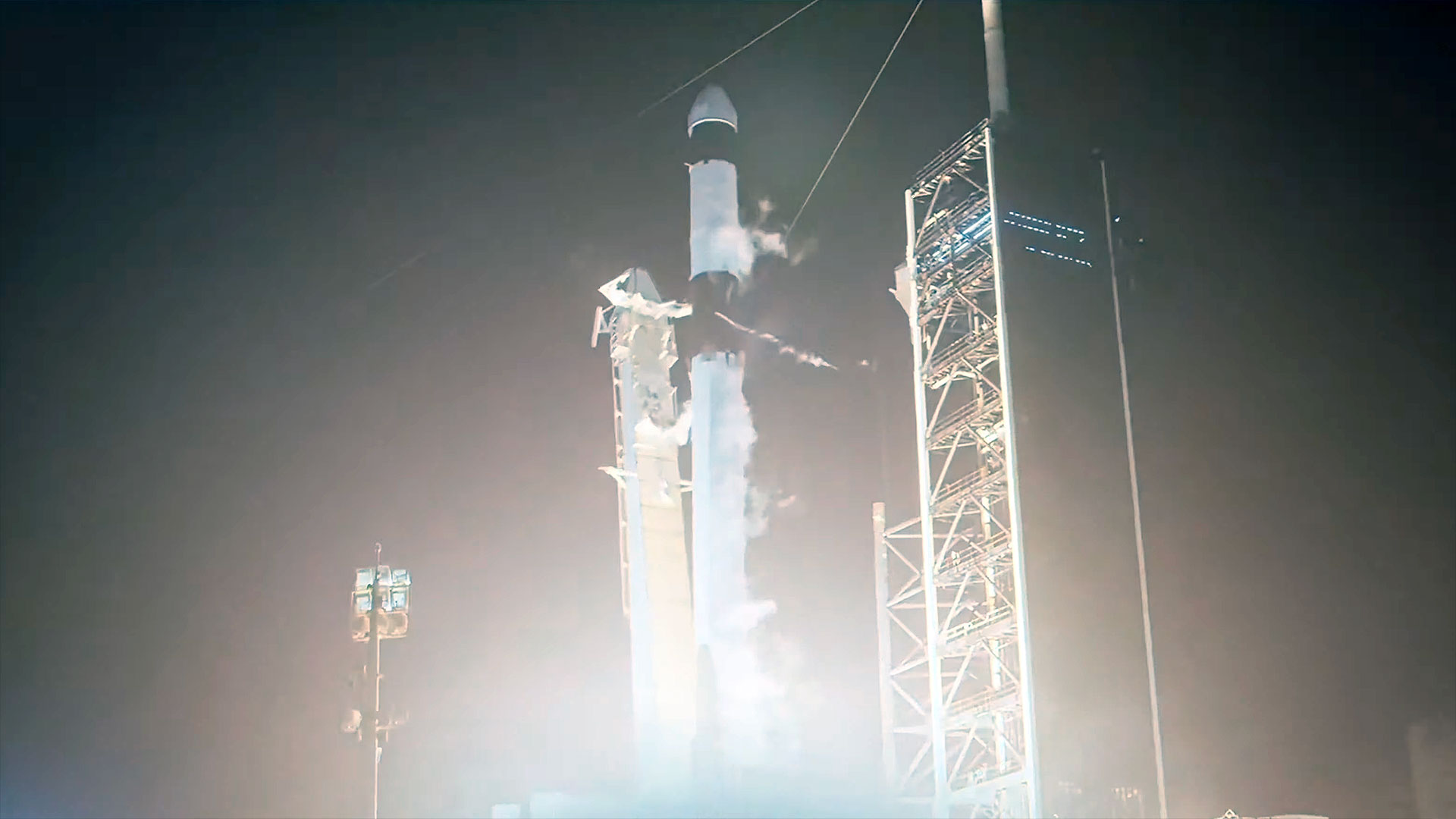Robotic Russian Cargo Ship Launches Express Delivery to Space Station
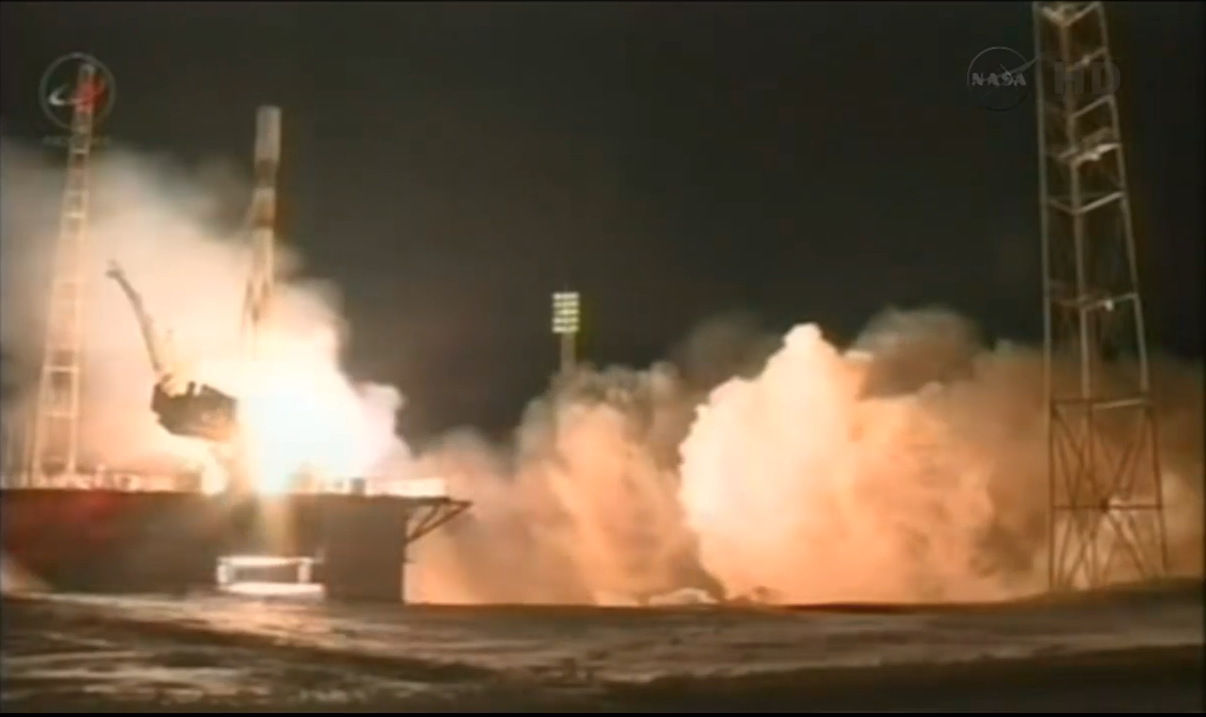
An unmanned Russian cargo ship launched on a quick trip to the International Space Station today (Feb. 5) to deliver tons of supplies for astronauts living on the orbiting laboratory.
The robotic Russian Progress 54 spacecraft blasted off atop a Soyuz rocket on a six-hour accelerated journey to the space station from the Baikonur Cosmodrome in Kazakhstan at 11:23 a.m. EST (1623 GMT), though it was late Wenesday night local time during the launch in the Central Asian nation. The Progress, loaded with 2.8 tons of supplies, is scheduled to dock with the orbiting outpost's Earth-facing Pirs docking compartment at 5:25 p.m. EST (2225 GMT). You can watch Progress 54's docking live online beginning at 4:45 p.m. EST via NASA TV.
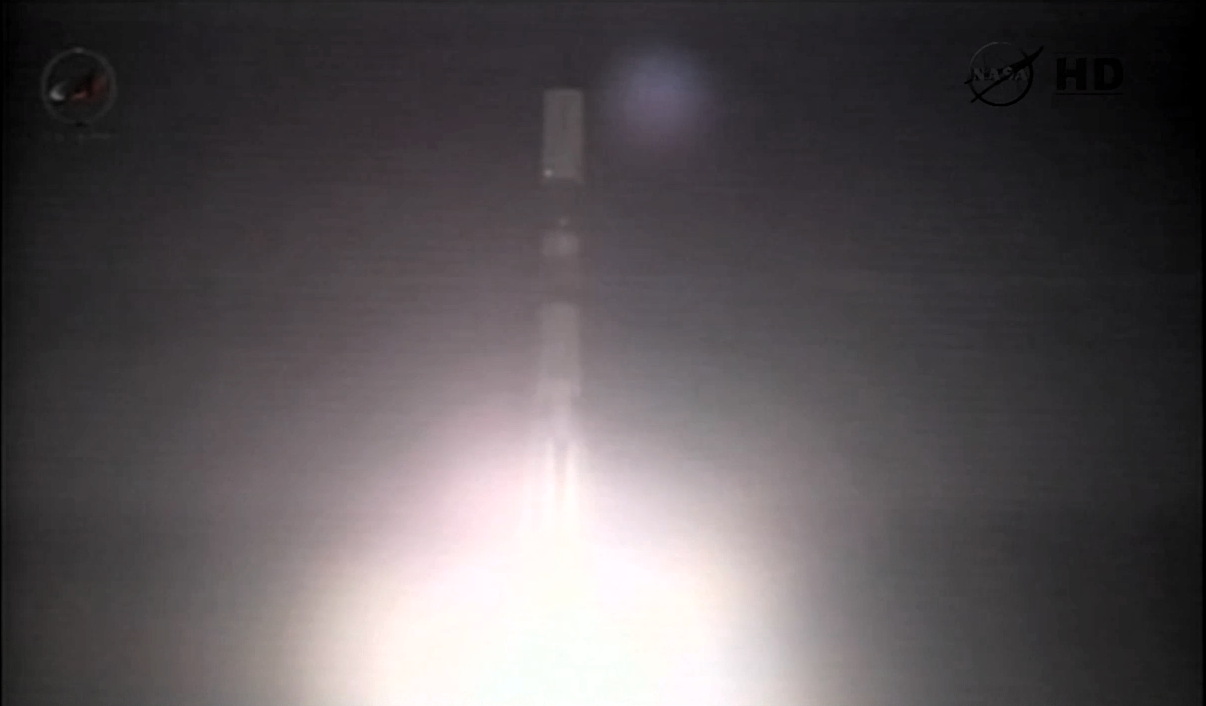
"The chase is on for the Progress vehicle to arrive at the station later this afternoon," NASA spokesman Kyle Herring said just after launch. [See launch photos of Russia's Progress 54 cargo ship]
Just before liftoff, the space station passed 260 miles (418 kilometers) above the launch pad. Astronauts on the station saw the rocket's first stage separation from the orbiting outpost. "It was a good show for a few seconds," one of the astronauts told Mission Control of the launch.
In the past, Progress vehicles have taken one or two days to arrive at the space station, but Progress 54 is scheduled to reach its destination after four orbits of Earth. Progress cargo ships have been flying these accelerated trips to the station since 2012.
The Progress 54 spacecraft is carrying 1,764 pounds (800 kilograms) of propellant, 2,897 pounds (1,314 kg) of spare parts, 926 pounds (420 kg) of water and 110 pounds (50 kg) of oxygen, according to NASA. Those supplies, which are expected to include fresh fruit and other food, will be welcomed by the station's Expedition 38 crew, currently manning the laboratory.
Another Progress supply ship, called Progress 52, undocked from the Pirs compartment earlier this week, making way for the new vehicle's arrival. Mission controllers on the ground are performing tests with the Progress 52 before de-orbiting it on Feb. 11, leading to its fiery death over the Pacific Ocean, according to NASA. (Progress 53 is still attached to the station's Zvezda service module.)
Get the Space.com Newsletter
Breaking space news, the latest updates on rocket launches, skywatching events and more!
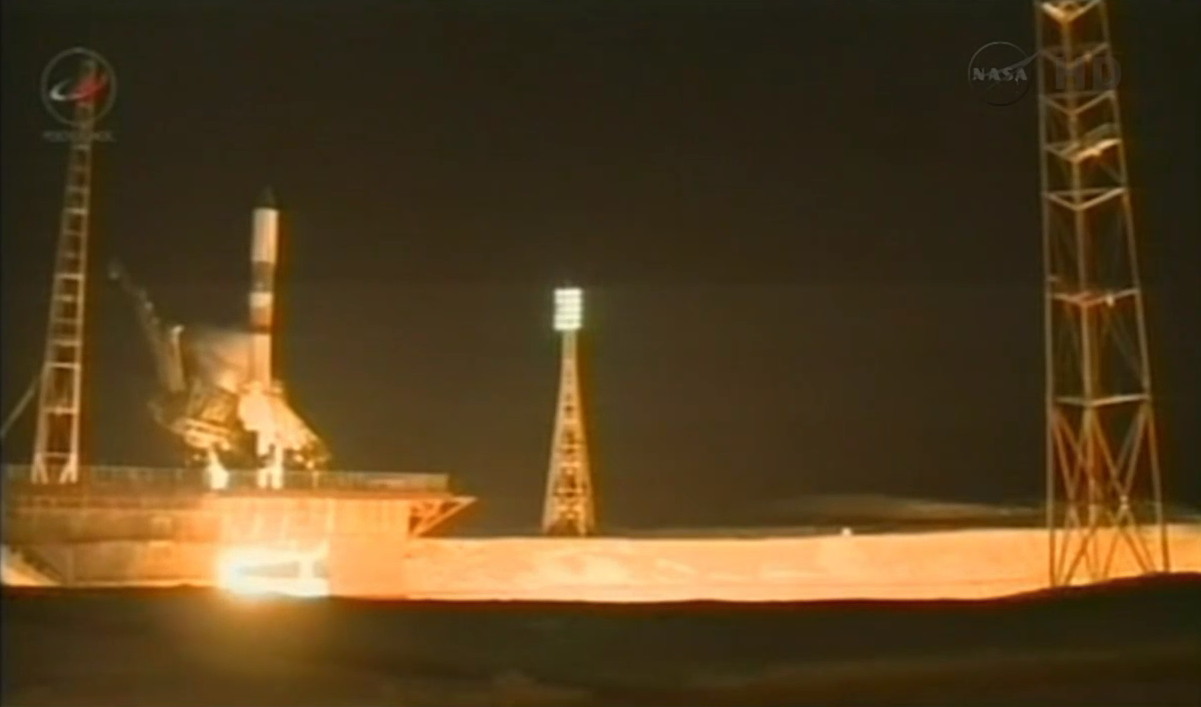
Progress spacecraft are three-module vehicles like Russia's Soyuz capsules used to fly astronauts to the International Space Station. Instead of the Soyuz's crew module, a Progress vessel holds a fuel module used for station maneuvers.
NASA has deals with two private spaceflight firms that fly cargo missions to the space station. Both SpaceX and Orbital Sciences Corp. use their spacecraft and rockets to deliver supplies to the astronauts and cosmonauts on the station. Europe's Automated Transfer Vehicles and Japan's H-II Transfer Vehicles also deliver goods to low-Earth orbit.
Six spaceflyers make up the Expedition 38 crew. Russian cosmonauts Mikhail Tyurin, Sergey Ryazanskiy and Oleg Kotov, NASA astronauts Rick Mastracchio and Mike Hopkins and Japanese space agency astronaut Kiochi Wakata all currently live and work aboard the station.
Follow Miriam Kramer @mirikramer and Google+. Follow us @Spacedotcom, Facebook and Google+. Original article on Space.com.
Join our Space Forums to keep talking space on the latest missions, night sky and more! And if you have a news tip, correction or comment, let us know at: community@space.com.

Miriam Kramer joined Space.com as a Staff Writer in December 2012. Since then, she has floated in weightlessness on a zero-gravity flight, felt the pull of 4-Gs in a trainer aircraft and watched rockets soar into space from Florida and Virginia. She also served as Space.com's lead space entertainment reporter, and enjoys all aspects of space news, astronomy and commercial spaceflight. Miriam has also presented space stories during live interviews with Fox News and other TV and radio outlets. She originally hails from Knoxville, Tennessee where she and her family would take trips to dark spots on the outskirts of town to watch meteor showers every year. She loves to travel and one day hopes to see the northern lights in person. Miriam is currently a space reporter with Axios, writing the Axios Space newsletter. You can follow Miriam on Twitter.
